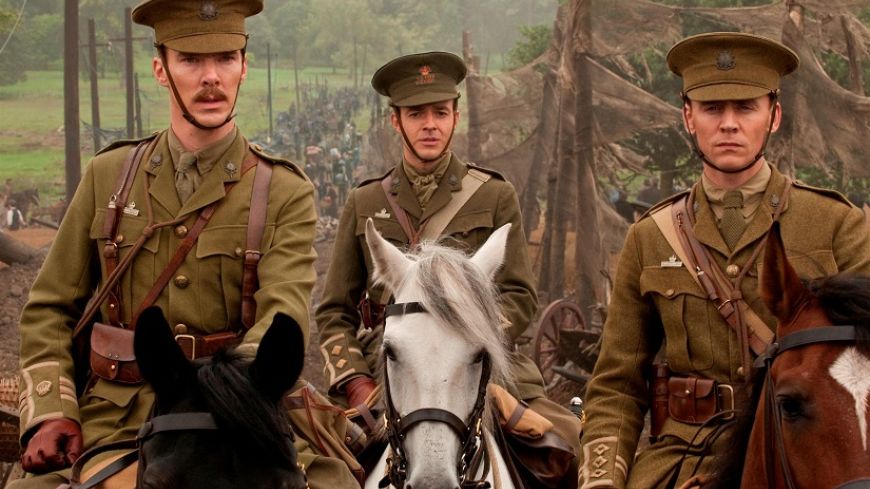
War Horse is a curious beast - disappointing in many ways - but like Spielberg’s lesser works it still deploys a few rousing set pieces reminding us of the flashes of brilliance he is capable of. This is an unbalanced mishmash of the old-fashioned and corny rubbing shoulders with the grim realities of war.
The National Theatre’s famously tear-jerking stage version of Michael Morpurgo’s novel using bamboo puppets must have been a hard act to follow or turn into an equally moving screen spectacle. Perhaps comedy writer Richard Curtis, whose much loved Blackadder version of World War 1, alongside various scripts involving a bumbling Hugh Grant, wasn’t quite the right choice to adapt it for as talented as he is in his field, this animal isn’t meant to be in it.
The film opens in the run-up to the outbreak of war on a Devon farm run by the Naracotts who despite their hard-working toil are on the brink of ruin. In a public display of oneupmanship, farmer Ted (Peter Mullan) foolishly outbids his much-loathed landlord to buy Joey, a fine thoroughbred horse, gambling it can plough his boulder-strewn field and turn a profit.
His son Albert (Jeremy Irvine) too young to enlist in the war, bonds with the animal and against the odds and in what is clearly meant to be an uplifting ‘I’ll show you what faith can do’ sequence nearly half kills himself and the horse to get the job done.
But its all for naught and come harvest time Ted is forced to sell Joey to the army which promptly ships the animal off to the front line. And so begins Joey’s epic odyssey as he’s shunted back and forth between sides and various masters – a couple of runaway German brothers, a precocious French girl, a German soldier and penultimately into the hands of a Brit played by Toby Kebbell who in his brief role outperforms the entire cast in the films best scene as he wanders into no mans land to rescue the animal from barbed wire, assisted by a lone German from the opposing trenches.
When the horse finally makes its way back to a wounded Albert who has somehow found his way there, the much-anticipated reunion is clearly intended to make us all blub, but for me I was rather relieved the film was drawing to a close.
The early Devon scenes populated with salt of the earth working class labourers is a picture postcard vision of ye olde poverty days I found unconvincing and the dialogue is from a different era.
There are visual touches and ideas crossing Powell and Pressburger’s Gone to Earth with Claude Berris Jean De Florette but War Horse never quite grabs us as much as those previous depictions of rural poverty.
I wasn’t sure whether Speilberg was attempting to make this in the style of these old-fashioned flicks or just hadn’t quite nailed his depiction of it. I also found Albert’s bond and dewy wide-eyed wonder with the beast a tad Disney-esque, however, the audible sniffles from several audience members suggests not everyone was as unmoved as I.
But the film lifts in the two principal battle scenes and a couple of other set pieces. Watching Captain Nicholls and Major Stewart (Tom Hiddleston and Benedict Cumberbatch) armed only with steel leading a cavalry charge only to be outclassed at the last moment by modern weaponry is thrilling and terrifying as is the Brits charge into no mans land into a hail of bullets.
There’s also an extraordinary sequence of the horse running loose through the war torn landscape prior to Kebbel’s aforementioned rescue.
But these few marvellous moments just weren’t enough to fully engage me. Perhaps because much of it kept shifting between the corny and theatrical to scenes of stark reality and that there isn’t really a central leading character apart from the horse.
This throws the viewer from the saddle at times as one becomes unsure of whose story is being told. Spielberg hasn’t completely lost his touch but his hands on the reins here weren’t tight enough.

